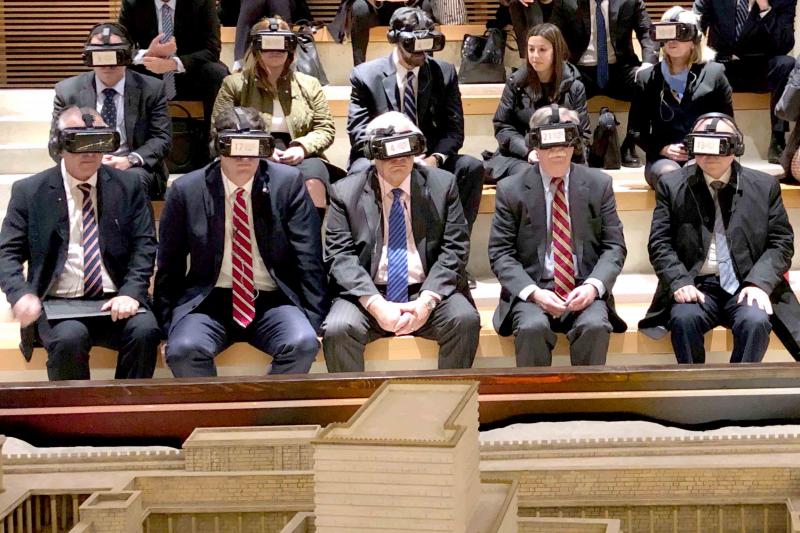When US President Donald Trump’s national security adviser John Bolton was pictured with US Ambassador to Israel David Friedman wearing virtual reality goggles during a January 6 visit to the Western Wall tunnel complex in eastern Jerusalem, social media lit up. “I think they’re looking for America’s Syria strategy,” came a clever tweet from Emma Ashford of the Cato Institute, the libertarian think-tank in Washington.
The internet smirked. It was a delicious thought that Trump’s senior lieutenants were scouring far and wide, even a computer-generated third dimension, for a Syria policy.
Ashford was engaging in gallows humour. It was brought on not just by the absurd photograph of Trump aides in silly headsets, taking in a virtual reconstruction of a Jewish temple at a site the international community does not recognise as sovereign Israeli territory. The American foreign policy establishment as a whole is appalled at the shifting state of Trump’s Syria strategy.
Many are asking what, if any, is the US policy on Syria now. On December 19, Trump announced the speedy and complete withdrawal from Syria of America’s approximately 2,000 troops. The Americans, Trump said, would leave Syria, a place of “sand and death,” to its own fate and Iran could do as it pleased.
The withdrawal was to be completed by January 18 but, within days, Bolton and US Secretary of State Mike Pompeo walked that exit strategy back.
Still, Washington’s so-called starched-collar foreign policy set is apoplectic. There is bipartisan consensus across the political divide — Democrats, as well as Trump’s Republican Party — that withdrawal from Syria would undermine the United States in the Middle East. That a receding footprint in the region would marginalise the United States, which former US Secretary of State Madeleine Albright called the “indispensable” nation.
Some of the caterwauling is overdone. What’s clear is that Trump has his own Syria policy and it can be spelt out in two words of one syllable: get out. What’s also abundantly clear is Trump’s reluctance to stay engaged overseas, without tangible gain, as he sees it.
This raises several uncomfortable questions: Is the reflexive judgment of the foreign policy establishment valid any more for a war-weary America? Should the United States continue to maintain a troop presence all over the world merely to prevent adversaries from filling a vacuum? And if Trump’s America has lost its taste for principled — and reliable — overseas engagement, will it adjust its ambition accordingly?
On January 4, the Trump administration dispatched 80 troops to Gabon to defend US interests and “further foreign policy” in the nearby Democratic Republic of the Congo, where the Roman Catholic church had warned of an uprising as a result of the contentious December 30 election.
On the face of it, the Gabon manoeuvre doesn’t sound like an America in retreat but the chaos over Syria does. Engagement and disengagement cannot run on parallel tracks alongside each other.
There are some, not least Harvard public policy analyst Jeffrey Sachs, who argue for a clean American exit, not just from Syria but the whole blind man’s buff game of “US regional hegemony.”
In a scathing commentary published by the Project Syndicate on “America’s real purposes in the Middle East,” Sachs called out “the truth about the US presence in Syria.” Washington never had “scruples about democracy in Syria or elsewhere in the region,” he said.
Sachs, whose latest book is titled “A New Foreign Policy: Beyond American Exceptionalism,” said the United States only ever wanted to “install a Syrian regime friendly to Turkey and Saudi Arabia, deny Russia an ally and push Iranian forces out of Syria.”
The real, unexamined, consequences of US actions in Syria have been disastrous, Sachs declared. Trump’s withdrawal could be a “prelude to an expanded regional war (or) a critical step on the path to an elusive peace in region.”
Perhaps.
Stay or go, the United States’ Syria script must address the larger dramatic plot: how indispensable a nation is it prepared to be? It cannot do a Gabon when it pleases and Syria on a whim.


